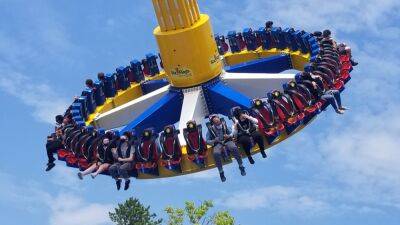Rising interest rates will hit already weak UK economy, output shows
Interest rate increases from the Bank of England will weaken a UK economy that is already expanding at its slowest pace since beginning to emerge from the winter lockdown of 2021, according to the latest snapshot of private sector activity.
Although performing slightly stronger than the eurozone, the latest monthly survey from the S&P Global/Chartered Institute of Procurement and Supply (Cips) showed both the UK services and manufacturing sectors struggled to cope with rising cost of living pressures.
The squeeze on industry from dearer commodity prices resulted in the first contraction of manufacturing output since the early stages of the pandemic in May 2020.
Andrew Bailey, the governor of the Bank of England, has said a half-point increase in borrowing costs is a possibility next month, but the S&P/Cips purchasing managers’ index suggested Threadneedle Street would be tightening policy with the economy at its most vulnerable in 17 months.
The survey showed service sector activity fell from 54.3 to 53.3 in June, while manufacturing dropped from 50.3 to 49.7. The composite output index fell from 53.7 in June to 52.8 in July. A reading below 50 suggests contraction rather than expansion.
Chris Williamson, the chief business economist at S&P Global Market Intelligence, said: “UK economic growth slowed to a crawl in July, registering the slowest expansion since the lockdowns of early 2021.
“Although not yet in decline, with pent-up demand for vehicles and consumer-oriented services such as travel and tourism helping to sustain growth in July, the PMI is now at a level consistent with just 0.2% GDP growth. Forward-looking indicators suggest worse is to come.”
Separate PMIs found the eurozone already in recession, with its
Read more on theguardian.com






